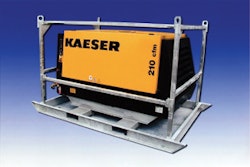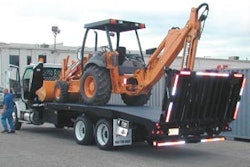The performance of extra work or disputed on any given competitively bid public works construction project has become customary in the industry. Generally, controversies regarding such work arise out of the scope of work to be performed pursuant to the contract documents. A typical situation involves the public agency asserting that the contract documents require the contractor to perform specified work for which the contractor or subcontractor contend is outside the contractual scope of work.
Pursuant to Section 3-3 of the Standard Specifications for Public Works Construction (The Greenbook), entitled Extra Work, new and unforeseen work will be classified as extra work when the Engineer determines that it is not covered by Contract Unit Prices or stipulated unit prices. Consequently, expenses would be necessitated by the conditions being other than as represented. In accordance with Section 3-5 of the Greenbook, entitled Disputed Work, if the Agency directs the general contractor (General to proceed with work which cannot be agreed upon, the General (or its subcontractor) must complete the work in accordance with the plans and specifications and dispute such work, per the Greenbook, for payment resolution at a later date.
Duties and Options of the General Contractor
Problems do however arise, when it comes to making a request that a listed subcontractor perform extra work or disputed work. In most cases, the listed subcontractor will perform the work pursuant to the Disputed Work provision in the Greenbook. However, the General is placed in a precarious position when the subcontractor refuses to perform the work. The General must decide whether it will hire another subcontractor or perform the work itself.
If the subcontractor refuses to perform the work, the General is left open to the "purported" risk of violating Public Contract Code ' 4107. In accordance with Public Contract Code ' 4107, a prime contractor whose bid is accepted may not substitute a subcontractor in place of the subcontractor listed in the original bid. There are however, exceptions to the statute, wherein the Agency may give the General permission to substitute another subcontractor. Frequent situations falling within such exceptions include, but are not limited to the following:
- Bankruptcy or insolvency;
- The listed subcontractor's refusal to execute a written contract;
- Performance of substantially unsatisfactory work or delaying or disrupting work progress (as determined by the awarding authority);
- Improper licensing;
- Failure or refusal to perform its subcontract;
- Failure or refusal to meet the bond requirements;
- Determination by the awarding authority that a listed subcontractor is not a responsible contractor; and/or
- When the General makes an inadvertent clerical error in its listing of a subcontractor. (1)
If any of the above situations arise, the General may substitute the listed subcontractor. In doing so, it must make a request(2) for the subcontractor's substitution to the Agency, or its duly authorized officer. Although not specifically required by statute, case law dictates that the General should specifically state a reason for the request, and get permission from the Agency as to the replacement subcontractor(s) who will be performing the work in place of the listed subcontractor.(3)
Failure to comply with the statute may result in penalties against the Agency and/or General.(4) However, special circumstances such as emergency situations do arise, which would likely provide justification for such a departure from the formal substitution requirements. But, as a practical matter, unless one of the statutory exceptions is satisfied, the General has no right to substitute another subcontractor in place of the listed subcontractor for work in which the subcontractor is listed. To that end, the statute confers upon the listed subcontractor the right to perform the subcontract, unless statutory grounds for a valid substitution exist. Moreover, that right may be enforced by way of an action for damages against the General to recover the profits (i.e., benefit of the bargain) which the listed subcontractor would have otherwise realized had it not been prevented from performing the work contained within the original bid documents.(5) Conversely, if any set off is claimed, the general rule is that a setoff must rest on a claim enforceable in its own right.(6)
Duties of The Agency
Upon receipt of the General's substitution request, the awarding authority or its duly authorized agent is required to give notice in writing to the listed subcontractor of the General's request to substitute and the reason for the request. Although the notice is required to be served by certified or registered mail, case law indicates that substantial compliance is acceptable under Public Contract Code ' 4107.5,(7) and may very well be acceptable under Public Contract Code ' 4107.(8)
The affect of Public Contract Code ' 4107 is to limit the right of the General to make substitutions, thereby putting it in the hands of the Agency to give permission to substitute in those situations listed above. Notably, all of the named situations are keyed to the unwillingness or inability of the listed subcontractor to properly perform.(9) In accordance with Public Contract Code ' 4107, the aforementioned procedure is used for subcontractor substitutions falling within the statute's enumerated descriptions. The main exception to this procedure pertains to the forwarding of the notice of substitution request to the listed subcontractor. If the substitution request is made due to a clerical error (e.g. where the General mistakenly listed subcontractor in a bid, instead of subcontractor AB), then the General has a duty to give notice to the subcontractor. In all other circumstances the duty to notify the subcontractor of the substitution request falls to the Agency. (10)
Duties And Options of The Listed Subcontractor
Upon receipt of notification as to the substitution request, the listed subcontractor will have five working days within which to submit to the Agency, written objection to the substitution. Failure to file such written objections constitutes the listed subcontractor's consent to the substitution. Subsequently, if written objections are filed, the awarding authority is then required to give written notice of at least five working days to the listed subcontractor of a hearing conducted by the awarding authority as to the General's request for substitution.
Analysis of Rationale Behind the Act
Both the statute and case law are silent with regard to whether a formal subcontractor substitution is necessary pursuant to Public Contract Code ' 4107, for extra work or disputed work. Additionally, the legislative history makes no mention of such. The purpose of the Subletting and Subcontracting Fair Practices Act is to prevent "bid shopping" by the General, including the pressuring of other subcontractors to submit lower bids than listed subcontractors or "bid peddling" by unlisted subcontractors to undercut known bids of listing subcontractors in order to procure the job. As such, it is highly questionable whether non-change order extra work and disputed work fall within the realm of what the legislature intended within its public policy reasons for enacting the statute.
On a similar plain, Public Contract Code ' 4107(c) allows for the subletting or subcontracting of work involving the performance of change orders causing changes or deviations from the original contract and/or any portion of the work in excess of one half of 1 percent of the prime contractor's total bid, as to which his or her original bid did not designate a subcontractor. However, since the statute and case law are silent with regard to separate formal substitution procedures for non-change order extra work or disputed work, it might be inferred that the lack of precedent in this specific area is due to problems relating to extra work and disputed work being classified under one of the other categories justifying the substitution (e.g. the subcontractor's failure or refusal to perform the subcontract). Although the Act likely was not intended to apply to extra work or disputed work, clarification in this regard would be efficacious.
Absent specific guidelines or specific handling procedures, until the code is amended or there is a judicial determination which takes into account the intricacies arising from competitively bid public works construction projects, it is best to take precaution and strictly comply with Public Contract Code ' 4107. Although such a factual situation seems innocuous, the limited time and effort it takes to comply with the statute may save the Agency and the General unnecessary protracted litigation later on down the line.
* This is an intricate area of the law. As such, if you have issues pertaining to the above, please contact an attorney or other legal advisor. For more information please feel free to contact BEAUMONT LAW FIRM, PC by phone at (559) 658-8771 or via e-mail at www.blf-law.com.
(1) For purposes of this article, specific procedural compliance with Public Contract Code ' 4107.5 will not be discussed herein.
(2) The Code does not specify whether it is necessary for the General’s request to be in writing.
(3) E.F. Brady Company v. MH Company, (1997) 58 Cal. App. 4th 182, 192, 67 Cal.Rptr. 2nd 886.
(4) Public Contract Code, '' 4110-4111.
(5) Southern Calif. Acoustics Co., Inc. v. C.V. Holder, Inc., (1969) 71 Cal.2d 719, 726-727, 79 Cal.Rptr. 319; R.J. Land & Associates Co. v. Kiewit-Shea , (1999) 69 Cal.App. 4th 416, 421, 81 Cal.Rptr.2d 615 (rev. denied).
(6) R.M. Sherman Co., Inc. v. W.R. Thomason, Inc. (1987) 191 Cal.App.3d 559, 563, 236 Cal.Rptr. 577.
(7) There is no statutory duty placed upon a prime contractor to directly give a subcontractor notice of its desire to substitute, except in the limited case of substitution for clerical error when the subcontractor fails or refuses to execute a subcontract after being afforded a reasonable opportunity to do so. W.J. Lewis Corp. v. Harper Construction Company, (1981) 116 Cal. App. 3rd 27, 28, 171 Cal.Rptr. 806.
(8) Cal-Air Conditioning, Inc. v. Auburn Union School District (MP Allen Prime Contractors) (1993) 21 Cal. App. 4th 655, 668-69, 26 Cal. Rptr. 2nd 703.
(9) Southern Calif. Acoustics Co., Inc. v. C.V. Holder, Inc., 71 Cal.2d at 723.
(10) W.J. Lewis Corp. v. Harper Construction Company, 116 Cal.App.3rd at 31.

















